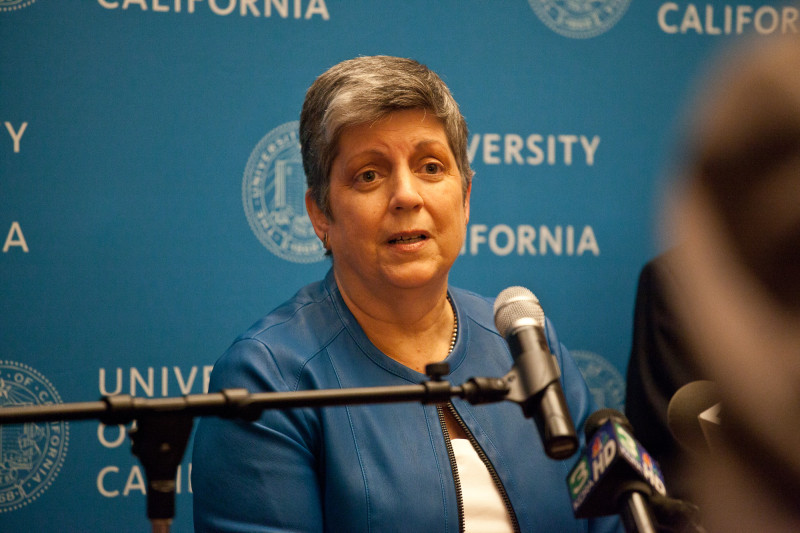Napolitano said she will boost that to $13 in October for employees who work at least 20 hours a week and by $1 an hour in each of the next two years.
About 4,200 UC employees and a much larger but undetermined number of workers hired by university contractors will receive the higher wage, UC spokeswoman Dianne Klein said.
"I just thought it was important for a public university to plant the flag here for low-wage workers and a more livable wage," Napolitano, who was President Barack Obama's homeland security secretary before she assumed leadership of the University of California nearly two years ago, said in an interview.
The higher minimum-wage argument has gained traction amid concerns over the shrinking middle class and rising income inequality.
Supporters argue a higher wage floor will help lift the working poor into the middle class. Opponents warn that businesses will have to raise prices, shed jobs or cut employees' hours. At least 15 states have passed laws barring local governments from setting their own minimum wage.
Democrats, including presidential front-runner Hillary Rodham Clinton, have said they support a higher federal minimum wage, which is currently $7.25 per hour.
Vice President Joe Biden was scheduled to promote a higher minimum wage during a stop Wednesday at a washroom equipment manufacturer in Los Angeles.
On Tuesday, Los Angeles County, the nation's most populous county, voted to craft a law to raise the minimum wage to $15 over the next five years.
On the other side of the country, a New York state board Wednesday was poised to recommend a minimum wage increase for fast-food workers. The state's minimum wage is now $8.75 an hour and is set to rise to $9 an hour at year's end. Many fast-food workers say their industry should pay a minimum of $15 so that they can afford the high cost of living in New York City and elsewhere.
Wal-Mart, the nation's largest private employer, announced in February that it was raising its wages for a half-million employees to at least $10 an hour by next February.
The $15 minimum has become the rallying cry of labor groups nationwide who argue the base wage hasn't kept up with inflation.
University of California officials estimated that the raises for workers directly employed by UC will cost $14 million a year, a fraction of the system's $12.6 billion annual payroll. Klein said UC also predicts contractors will pass some of the cost of higher wages onto the university.
In recent months, workers and UC union leaders have complained about the university's increased reliance on contractors who, they allege, treat employees unfairly.
Napolitano said she is setting up a hotline and online reporting system so complaints about contractors' labor practices go directly to her office. The university also plans to audit its contractors to make sure they are paying their workers the higher base wage, she said.
Napolitano's minimum-wage plan does not need approval from the governing Board of Regents, who on Wednesday were scheduled to consider a 3 percent cost-of-living increase for campus chancellors, medical center directors and other top executives.
